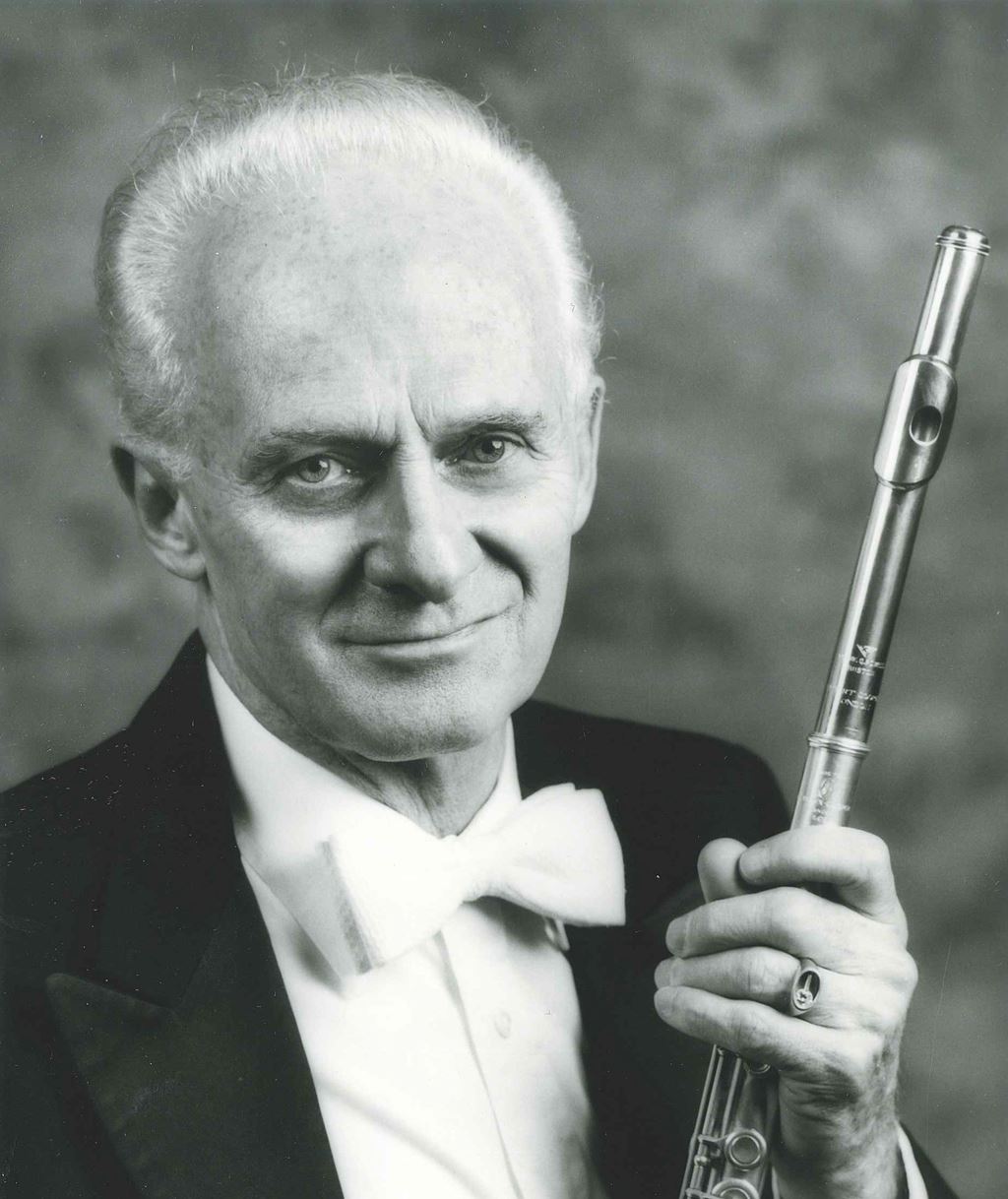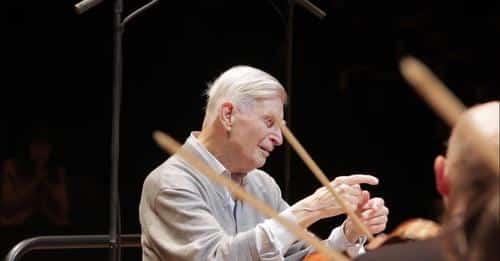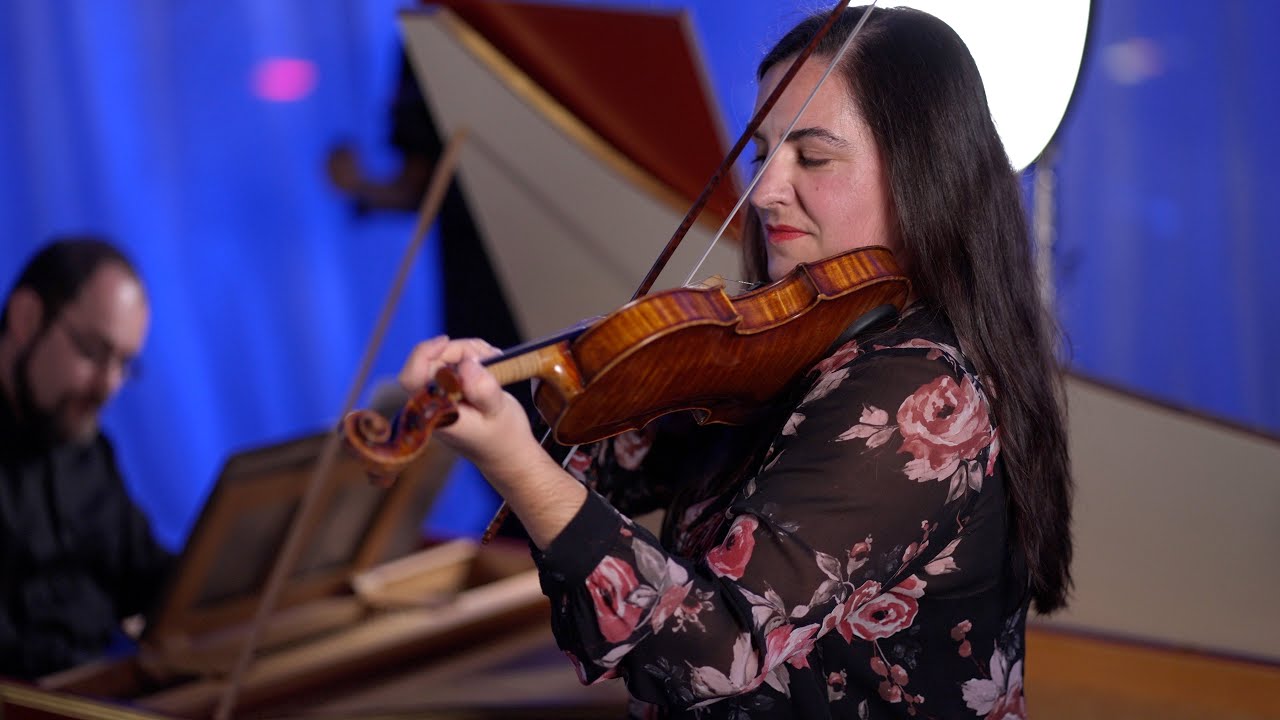Chicago Symphony mourns principal flute
RIPDonald Peck, a member of the Chicago Symphony Orchestra from 1957 until 1999 and principal flute for over forty years, died on April 29. He was 92.
Appreciation here.

Donald Peck, a member of the Chicago Symphony Orchestra from 1957 until 1999 and principal flute for over forty years, died on April 29. He was 92.
Appreciation here.
The numbers are in at the Erl winter…

The conductor, 97, gives a reflective interview to…

The Czech National Theatre has started the year…

The baroque violinist Tekla Cunningham has founded a…

Session expired
Please log in again. The login page will open in a new tab. After logging in you can close it and return to this page.
I think my favorite musical memory of Don was his playing in “Der Abschied” from Mahler’s “Lied von der Erde”. He got this extraordinary hollow almost broken sound that had nothing to do with traditional concepts of beautiful flute tone but was utterly perfect for what the music was expressing. He was an underrated musician, and always kind to me.
I’m in great conflict now because my Catholic upbringing tell me to not speak ill of people who have passed on. But…
He has a very beguiling lithe tone and phrasing, very pure and precise.
Why do you say “underrated”? Just curious….
My sense was that Don was never regarded as one of the stars of the orchestra in the peak Solti years. You heard a lot more about Clevenger, Herseth Jacobs, and Ray Still, for example. Which is not to say I didn’t have the utmost admiration for all of these gentlemen.
Clevenger got an obit in the NYT. Peck made the Chicago Tribune but not the NYT.
So I guess that would make a case for “underrated”.
I somehow feel he was overshadowed in the CSO by Ray Still, Bud Herseth, and Dale Clevenger, and in flute world by Julius Baker (so nice to read that little tribute by Baker), but he was a legend in arguably the CSO’s most legendary era.
Story goes he and Ray Still were legendarily at odds, each accusing the other of undermining his playing, and when Solti arrived as music director and experienced it at rehearsal, he summoned both to his office and gave them an ultimatum, a music director cannot have his principal flute and oboe in open conflict, either you guys make up, or I leave.
Solti stayed.
Yes, something to do with Jean Martinon, the CSO’s previous music director, having sacked Still and Peck being among those who had testified against him. Still got his job back but the episode created bad feeling.
Here’s Solti, in his own words, about what happened:
https://www.youtube.com/watch?v=-u8uUeE0YUU&t=4574s
I wasn’t there yet, but the account of many of my former colleagues was rather different. I heard several versions of essentially the same story over the years. Don’s flute dropped to the floor (why this happened varies in different versions of the tale) and Ray instinctively knelt down with Don to see if the instrument was damaged. Concern about damage to a musical instrument superseded their long enmity, and after this they patched it up. I never heard any account of the meeting Solti describes. It might have happened, certainly. But it is also possible that the “Maestrissimo” (as a dearly beloved late colleague wryly called him) was giving himself a bit too much credit.
The genesis of the conflict does indeed date from the Martinon years. He was a divisive figure, certainly, and Ray apparently made no effort to hide his disdain for the man. Even more significantly, it was at this time that the orchestra formed its Players’ Committee, for the first time asserting its right to negotiate contracts (before this the Union made deals with management with little or no input from the musicians). Ray was a crucial figure in this, and I believe was briefly fired for his efforts. The NLRB was called in and ruled he must be reinstated, as I understand it.
It was a bitterly divisive time, with some players supporting the new Committee and others not; more than one witness from the era regaled me with stories about fistfights in the alley behind Orchestra Hall from that time. Peck and Still were not the only musicians who were not on speaking terms.
One of my great regrets is that I didn’t interview the leading players from this time while they were still around and construct an oral history of the struggle. It was a fascinating episode in the history of the labor movement.
Since this article is about Mr. Peck, here he is, in the same documentary, of both the maestro and his first flutist, both towards the end of their long careers, together, perhaps for the last time :
https://www.youtube.com/watch?v=-u8uUeE0YUU&t=5240s
Solti certainly had something to do with it. But there’s another story about a rehearsal break during which Still knocked Peck’s flute off its stand. Everyone froze in horror, expecting an explosion. But Still burst into frantic, panicked and profuse apologies. Peck was persuaded that he was sincere, and although they were never friends, they played next to each other in peace.
Overshadowed as he should have been. He’s lucky that he got the job in the first place. Also, I wouldn’t take what Baker said to heart. There was normally a stark contrast between what Baker said in public and what he said behind closed doors.
Peck was a great storyteller in addition to being a wonderful musician. He told this story to some U of Chicago students back in the 1970s. After a guest conductor announced the death of former CSO director Fritz Reiner, and the rehearsal concluded, Peck found a fellow musician in prayer in the locker room. When Peck mentioned his shock that the person was praying for a conductor who the latter hated, the player responded that no he was not praying for the soul of Reiner, he was thanking God for answering his prayers!
In 2010, an article titled “Defending Ray Still: An interview with Jerry Kaplan” appeared in The Double Reed. The author was Nora Post.
Kaplan was the attorney who defended Ray Still in the aftermath of Still’s termination by the CSO. There is much in this article that fills in the gaps re the Martinon-Still contretemps.
https://www.norapost.com/pub_recent/Kaplan%20IDRS%20Proof.pdf
Jasper